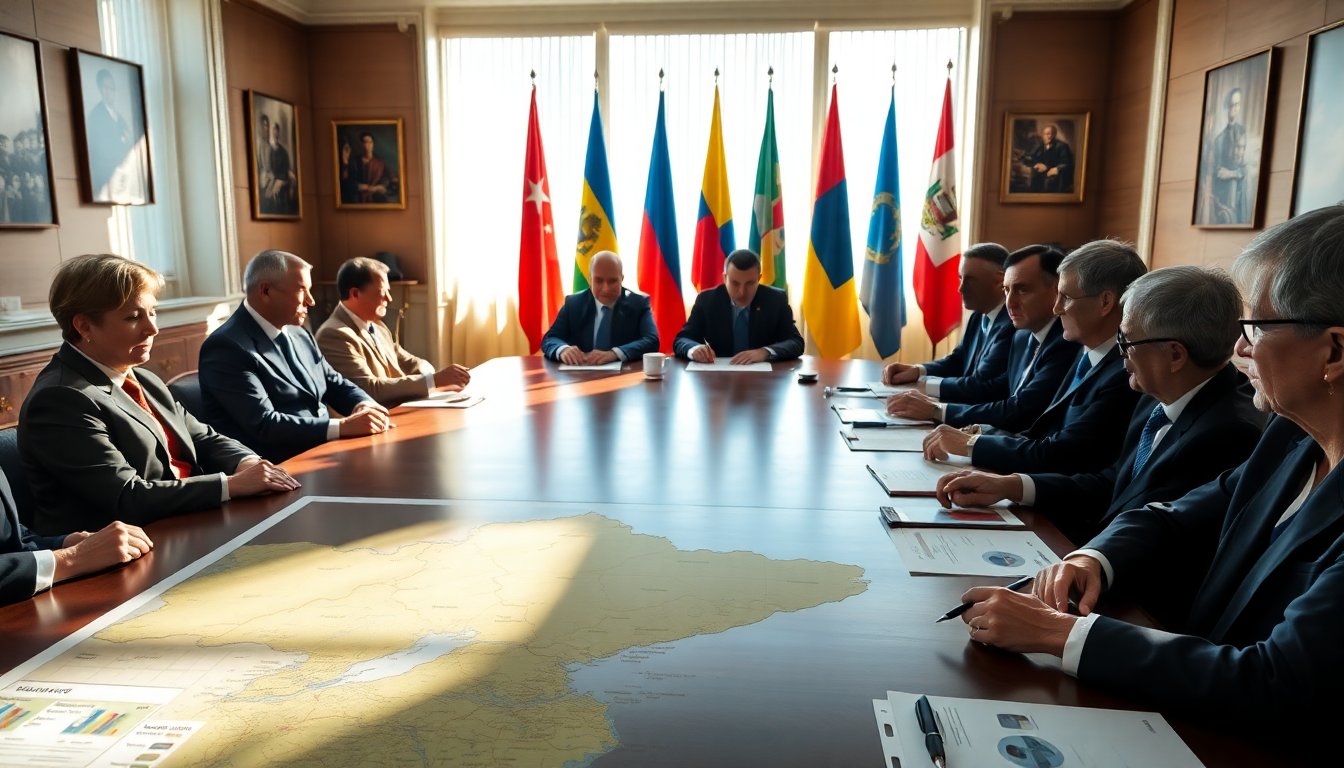Table of Contents
The United States has announced a peace initiative aimed at resolving the ongoing conflict in Ukraine. This development has raised concerns among European nations, who feel excluded from discussions that directly affect their security. The proposed 28-point plan reportedly requires substantial concessions from Ukraine, prompting questions about the long-term effects on the country’s sovereignty and stability.
Ukrainian President Volodymyr Zelenskyy has expressed his willingness to engage in constructive talks, stressing the importance of a peace agreement that honors Ukraine’s sovereignty and the dignity of its citizens. However, the lack of prior consultation with European allies has heightened fears that the U.S. might make decisions that do not align with the interests of all parties involved.
European discontent over U.S. peace negotiations
As details of the peace plan surfaced, European officials voiced their frustrations. They emphasized that discussions about Ukraine’s future should include input from European allies, who have consistently supported Ukraine since the conflict began. Without their involvement, there is concern that the plan could be perceived as a capitulation by Ukraine, possibly emboldening Russian aggression.
The role of Europe in Ukraine’s security
European nations have underscored the necessity of a united front against Russian hostilities. They worry that excluding their perspectives from peace talks could weaken their collective security interests. Karoline Leavitt, the White House press secretary, stated that the U.S. is maintaining open lines of communication with both Ukraine and Russia, yet the absence of European voices in these discussions remains a concern for many.
Moreover, President Zelenskyy acknowledged the need for a peace agreement that is both immediate and sustainable. He stated, “From the very first days of the war, we have held one very simple position: Ukraine needs peace. And real peace – the kind that will not be broken by a third invasion.” This reflects the prevailing view that any agreement must respect Ukraine’s independence.
Challenges posed by ongoing conflicts and scandals
A significant corruption scandal within the Ukrainian government complicates the situation further. This issue poses challenges for Zelenskyy as he navigates international diplomacy while addressing internal problems. The timing of the U.S. peace proposal coincides with this scandal, casting doubt on Zelenskyy’s leadership and his capacity to negotiate effectively.
Public trust and international perception
Confidence in Zelenskyy’s administration has reportedly been shaken, with political analysts suggesting that this scandal could weaken Ukraine’s negotiating power on the international stage. Ukrainian Member of Parliament Kira Rudik remarked that while Zelenskyy represents Ukraine, the actions of individuals within his government do not diminish the sacrifices made by the Ukrainian people. “Zelenskyy is not Ukraine, and the scandal cannot diminish the sacrifices that Ukrainian people are continuing to make,” she stated.
As the situation evolves, the complexities of the U.S.-proposed peace plan continue to unfold. Observers note that the plan’s success depends on the unity and solidarity of Ukraine and its allies against common challenges.
Future implications of the peace proposal
The implications of this peace initiative extend beyond immediate conflict resolution. Analysts caution that the concessions required from Ukraine could set a precedent for future negotiations, potentially impacting both Ukraine’s status and the geopolitical balance in Eastern Europe. European leaders are advocating for a more inclusive approach to ensure that any agreement reflects the aspirations of all involved parties.
The U.S. peace plan for Ukraine marks a significant turning point in the ongoing conflict. While the desire for peace is a common goal, the manner in which it is achieved remains critical. The call for European involvement is evident; without it, the path to peace may present challenges that could undermine Ukraine’s future.


